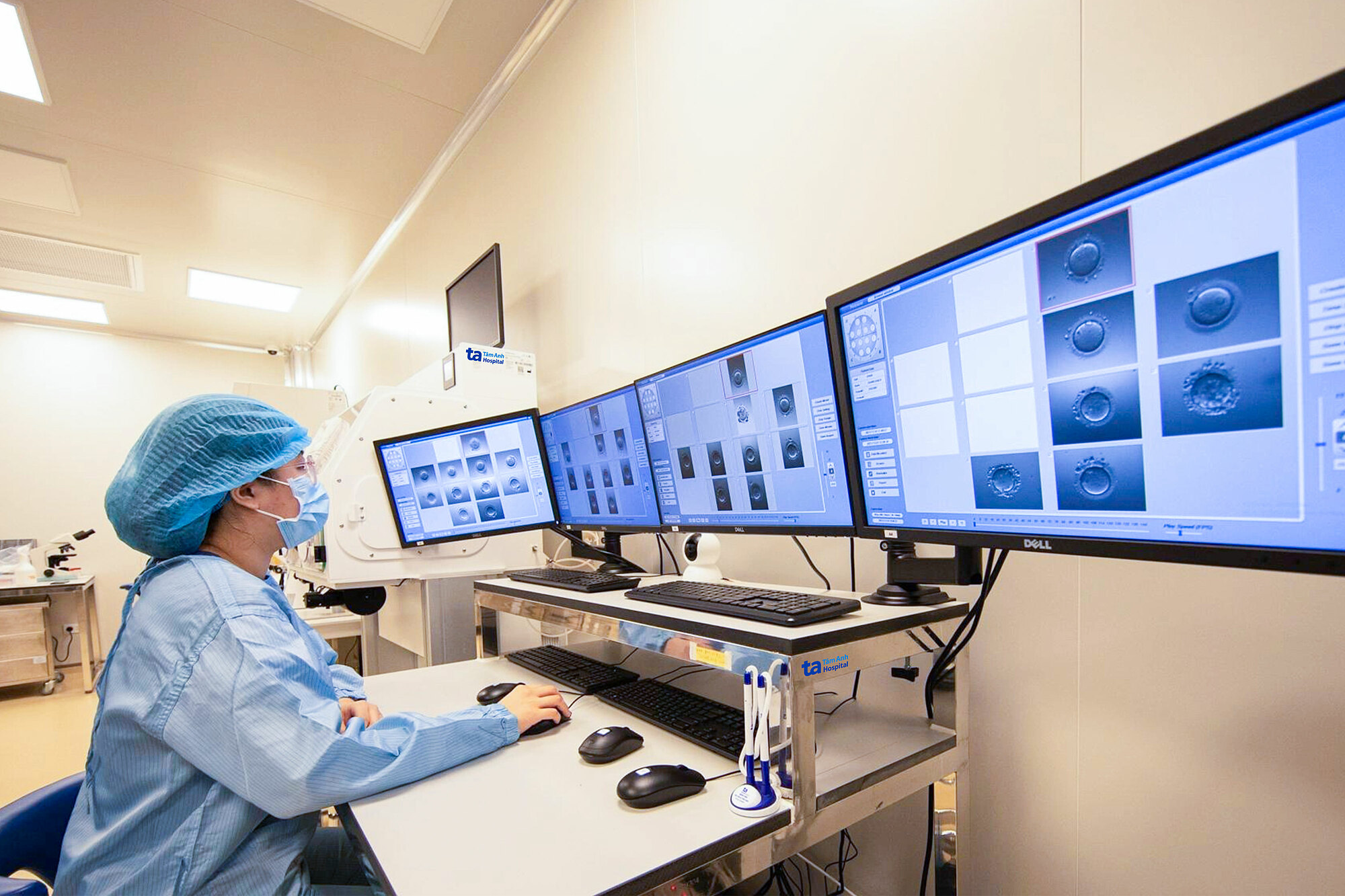While the anti-Müllerian hormone (AMH) level for women under 38 typically ranges from 2.0 to 6.8 ng/ml, Ms. Hoa’s AMH was just 0.384 ng/ml. Doctor Phung Huy Tuan, from the Fertility Center at Tam Anh General Hospital - District 8, diagnosed Ms. Hoa with idiopathic diminished ovarian reserve, meaning the cause is unknown. He predicted that natural conception would be very difficult. Her ovaries were atrophied and their function reduced, with almost no secondary follicles and no ovulation. Most similar cases require donor eggs for in vitro fertilization (IVF) to conceive.
However, Ms. Hoa's young age meant that while her eggs were few, they were of relatively good quality, with a lower rate of chromosomal abnormalities and a higher potential for healthy embryos. Studies show that women with low or very low ovarian reserve can still conceive using their own eggs if the egg quality is sufficient. "We have successfully treated cases with AMH levels near zero," Dr. Tuan said, adding that the chance of pregnancy also depends on other factors such as the uterus and the mother's overall health.
Ms. Hoa underwent two unsuccessful intrauterine insemination (IUI) attempts. She then proceeded with IVF, receiving daily hormone injections for 10 to 12 days to stimulate the development of multiple egg follicles, instead of the single follicle produced in a natural cycle. Initially, Ms. Hoa responded poorly, producing only one egg. Doctors used frequent ultrasounds and blood tests to monitor follicle growth and adjust medication accordingly. In two subsequent cycles, she produced a total of 13 eggs.
All retrieved eggs were placed in a Time-lapse incubator equipped with continuous camera monitoring and artificial intelligence (AI) to record embryo development. This resulted in two day-5 embryos.
One high-quality embryo was transferred to Ms. Hoa's uterus, and the other was cryopreserved. She conceived on the first embryo transfer and is currently more than 9 weeks pregnant.
 |
An embryologist monitors and assesses a patient's embryos. Photo: Tam Anh IVF |
An embryologist monitors and assesses a patient's embryos. Photo: Tam Anh IVF
AMH is a hormone produced by small ovarian follicles. Its blood concentration reflects ovarian reserve. From the age of 35, a woman's AMH levels begin to decline. Other factors contributing to diminished ovarian reserve include genetics, ovarian surgery, cancer treatments that damage the ovaries, severe endometriosis, and autoimmune diseases.
According to Dr. Tuan, low AMH is a common cause of female infertility. At Tam Anh IVF, over 15% of patients experience this condition and are treated with egg or embryo banking strategies across multiple cycles, combined with advanced embryo culture technology. This approach achieves a pregnancy rate of nearly 79% per embryo transfer.
Dr. Tuan recommends that women aged 28 to 30 and older, who are not planning to marry or have children soon, consider checking their AMH and antral follicle count (AFC) to assess their ovarian reserve. This allows them to make informed decisions for the future. He also emphasizes maintaining a healthy lifestyle by avoiding smoking, eating a balanced diet, exercising regularly, minimizing stress, and avoiding exposure to harmful chemicals. Regular health check-ups are also crucial for early detection of any abnormalities.
Dinh Lam
*The patient's name has been changed.












